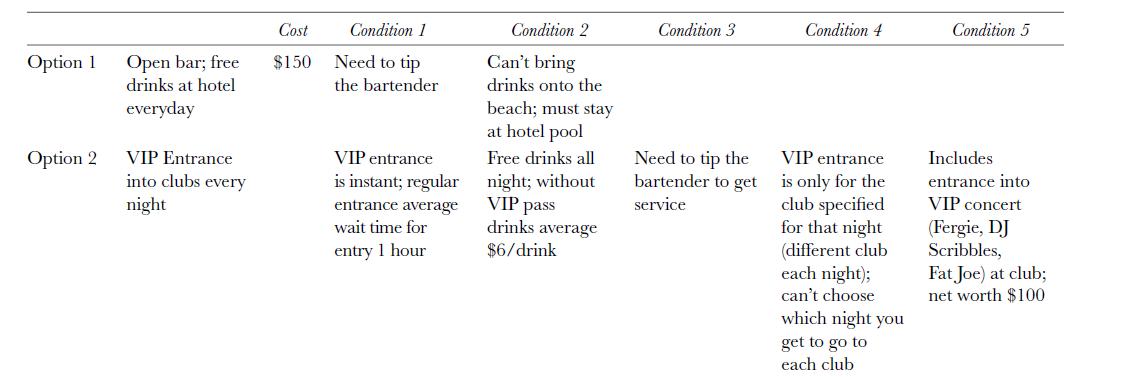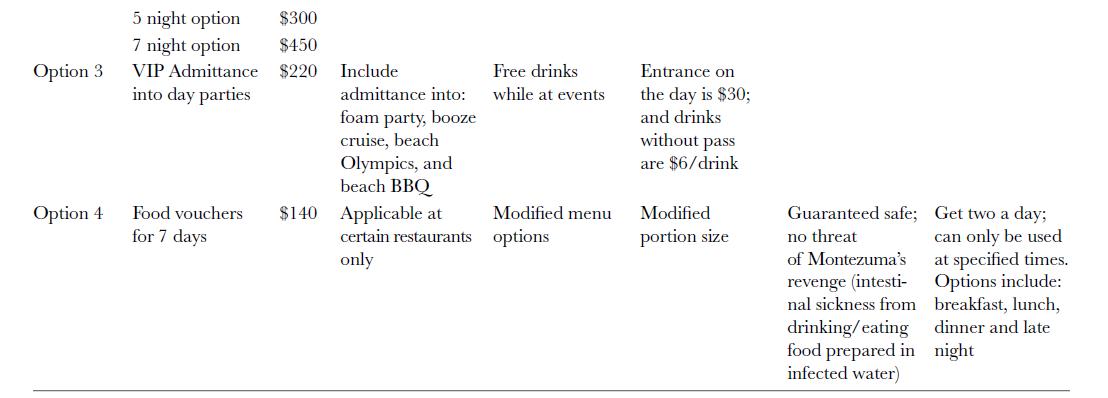This scenario asks you to adopt a collaborative negotiation style and start to work negotiating your first
Question:
This scenario asks you to adopt a collaborative negotiation style and start to work negotiating your first off - campus apartment. To simplify things for first - time role players, the negotiation involves one main issue – the price of renting/leasing an apartment. The negotiation has two roles:
(a) The owner landlord
(b) The student who is a potential renter.
You will be negotiating the cost of monthly rent as well as terms of benefits/services for the lease. There is additional information you can use to leverage your negotiation and obtain the best deal for your role. However, it is important that you use your confidential role information to determine how attractive various offers made by your partner are to you.
Background information. You are negotiating the terms of a lease for an unfurnished, one bedroom, and one bathroom apartment. The lease comes with three benefits/services free, while the other benefits/services are allowed at an additional negotiated price. The landlord must allow three benefits/services to be included free of charge. The landlord is allowed to deny any service/benefit. The landlord decides if a security deposit is necessary. You must negotiate your lease combination as well as the monthly rent payments. The city of College Park lists the monthly rent of comparable apartments as averaging $ 650. Below is a list of possible benefits/services:
◆ Parking privileges for tenants and guests
◆ Safety: alarm system installed
◆ Safety: insurance for anything stolen
◆ Rodents, insects: exterminator fees
◆ Air conditioning and heating
◆ Allowance of pets on premise/in apartment
◆ Maintenance problems: agree to fix maintenance problems (negotiable) within a timely (negotiable) manner
◆ Furniture: apartment comes furnished
◆ Utilities: gas and electric bundle
◆ Utilities: water and basic cable and internet (not wireless) bundle
Role A:
Student renter: The tenant is currently a student at the University of Maryland and is looking for an apartment to live in the College Park area. The university is going through a housing shortage and has decided to “ kick ” all upper classmen off campus. You don’t have a car, and need a place to live. Since you don’t have a car, this landlord ’s apartment would be ideal. The landlord apartments are the only ones within 5 minute walking distance of the university. However, there are other apartments a little bit further. The maximum you can afford is $ 900/month. You want to get the most benefits/services for the least amount of money.
Role B:
Landlord: You want to lease your apartment out for the highest price with the least amount of benefits/services. Each service requires additional money from you to pay the workers. The university housing shortage has created a demand in off - campus housing. In addition, the economy isn’t doing well. The competition is steep from the surrounding landlords, so you want to ensure you lease out your apartment. Furthermore, you need to establish a long - term relationship with the renter. You want to utilize the renter as a resource to network future business opportunities. In addition, you want good relations with the renter to ensure future stay. You must negotiate with the renter to determine the appropriate set of benefits/services that will satisfy the student ’s needs in order to secure the desired amount of profit for yourself.
Part A
Introduction. Part A of this exercise is a negotiation whereby a college student and a travel agent attempt to come to terms on the price and services associated with a Spring Break trip to Acapulco, Mexico. The Spring Break trip includes a party package. You will be negotiating the cost of the Spring Break trip as well as what components will be involved in the Spring Break trip package. There is additional information you can use to leverage your negotiation and to compromise the best deal for your role. However, how closely one matches their roles utility is what will determine how well you did in comparison to the other groups.
Roles: Student and travel agent.
Background information. All trip options include roundtrip fare and hotel stay fare in prices. You will negotiate the length and price of the trip. In addition, you will negotiate the options for the party package combination. The party package must include three options. One option is free (determined through negotiation which one) while the others are available at a negotiable cost. All prices listed are the suggested price and are negotiable. The travel agent has the right to change any price at their discretion.
Basic information:
Party package information: Based on negotiation; one option is free and any other two options for list price (must have three; can have more) Other things to consider:
◆ Taxi fare (not all clubs are within walking distance)
◆ Passport (need to renew?)
◆ Doesn’t include tourist activities (i.e. jet skiing, parasailing, bungee jumping, cliff diving)
◆ Phone card – phone coverage might not reach into Mexico
◆ Travel protection – can be provided for an additional $ 68
Role A:
Student: You want to party on Spring Break. Your parents agreed to pay $ 1000 of your Spring Break vacation. This is money you have upfront. You have saved $ 300 of your own money, which is available to you upfront as well. You are able to earn an additional $ 350 before your Spring Break trip. This money will not be available to you until the week before the trip. Your main motivation is to party hard for the least amount of money. You will need to bargain to get the best components out of the package deal. You will highlight the limitations or drawbacks of the options as well as allude to additional costs not included in the package option deals to get the best price. You want to ensure you have the most opportunities to enjoy yourself as possible. In addition, you can always book with another travel agent.

Role B:
Travel agent: The economy isn’t doing well and your salary depends on your ability to fill a plane for Spring Break. You want to book your student ’s trip at the highest cost. For each trip booked .01% of the total cost of that booked trip is deducted off your next vacation. You want to book the trip quickly in order to maximize the amount of clients you can book. You also want to maintain good relationships with your clients in order to build a network of future clients through the student. Thus you want a happy client who will tell their friends to book with you as well. The more people that book through you, the more money you receive off your next trip. Your main motivation is to emphasize the most expensive options of the party package. You will highlight the benefits of each option and try to convince the student they need all options for the best Spring Break experience. You want to book the student the most expensive trip you can, in a timely manner. You have the power to change the list price for any of the options if doing so aides in your negotiation.
Part B – Mediating a settlement between student and travel agent after a failure to agree
Introduction. Part B assumes that two days before Spring Break, the student and the travel agent are still unable to reach a mutually satisfying agreement over the Spring Break trip, leaving the student with no vacation options. As a last course of action, the student contacts his/her father, a talented manager in the computer industry and asks for help. The father, an experienced manager who has recently read Chapter 28 agrees to mediate the dispute in order to try to help the parties reach agreement. Please assume the mediator role in this exercise and use the principles and recommendations for third party mediation. Your interests are simply to help your son or daughter settle on an affordable and enjoyable vacation without putting the travel agent at a disadvantage, to strengthen your own mediation skills through practice and to teach both parties something about the value of effectively implemented mediation in resolving conflicts between two parties.
Discussion questions
1. What kind of negotiation did you use in the exercises, distributive – win/lose or collaborative – win/win? Why did you choose this type?
2. Which negotiation principles did you rely on most heavily? Why? How well did they work?
3. Did you reach an agreement with your partner? What were the terms? How satisfied were you both with the agreement and what effect do you believe it will have on your ability to work together on a deal again?
4. What was the outcome of the mediation exercise? Why did this outcome occur?
5. Did the mediator assertively apply diagnostic, contextual and substantive interventions during the mediation attempt? What, if any, effect did these behavioral interventions have?
6. What might the mediator have done differently to enhance the likelihood of settlement between the parties?
7. Did any boundary conditions exist that negatively affected the impact of the mediation interventions? Please explain.
Step by Step Answer:






